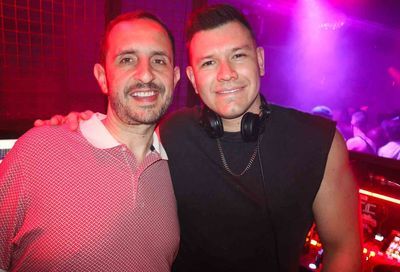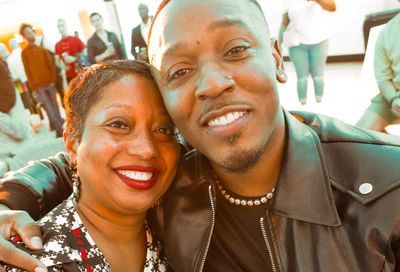Oral arguments in Masterpiece Cakeshop SCOTUS case scheduled for Dec. 5
Justices must determine whether businesses have the right to deny LGBTQ people service based on religious beliefs

The Supreme Court has set oral arguments in the case of Masterpiece Cakeshop v. Colorado Civil Rights Commission for Tuesday, Dec. 5.
The case is considered a crucial one for the LGBTQ rights movement. It centers around an incident from 2012, when Jack Phillips, the owner of Masterpiece Cakeshop, refused to bake a cake for the wedding reception of Charlie Craig and David Mullins, who had planned to marry in Massachusetts.
The couple sued, alleging that Phillips had illegally discriminated against them, violating Colorado’s law prohibiting discrimination against people based on sexual orientation.
In 2013, an administrative judge ruled in Craig and Mullins’ favor. In 2014, the Colorado Civil Rights Commission also found Phillips guilty of violating the law.
Masterpiece appealed the decision to the Colorado Court of Appeals, which ruled unanimously that it had violated the state’s nondiscrimination law.
In 2016, the Colorado Supreme Court refused to hear the case, prompting Phillips’ lawyers to appeal to the U.S. Supreme Court, which agreed to hear the case in June.
The U.S. Department of Justice under the Trump administration has jumped to defend Phillips, filing an amicus brief with the Supreme Court defending his right to turn away same-sex couples.
In the brief, the DOJ echoes arguments made by Phillips’ lawyers that Colorado’s nondiscrimination law infringes upon the baker’s First Amendment rights.
Specifically, the DOJ argues that creating custom-made cakes constitutes a form of artistic expression. As such, forcing Phillips to bake cakes for gay and lesbian weddings, even if it’s just a generic cake and has no message explicitly endorsing same-sex unions, curbs his right to express his religious beliefs opposing same-sex marriage.
Colorado’s law — and other laws like it — will need to be overturned or amended to allow exemptions for opponents of same-sex marriage.
Regardless of the outcome of the case, recent polls indicate that Phillips, and others who agree with him and the DOJ, are in the minority when it comes to allowing religious exemptions to public accommodation laws.
According to a poll by the Public Religion Research Institute, found that 60% of Americans oppose allowing wedding-related businesses to refuse service to LGBTQ people. That number climbs to 64% when people who work as florists, photographers and bakers are asked about whether they support or oppose such religious exemptions.
Support Metro Weekly’s Journalism
These are challenging times for news organizations. And yet it’s crucial we stay active and provide vital resources and information to both our local readers and the world. So won’t you please take a moment and consider supporting Metro Weekly with a membership? For as little as $5 a month, you can help ensure Metro Weekly magazine and MetroWeekly.com remain free, viable resources as we provide the best, most diverse, culturally-resonant LGBTQ coverage in both the D.C. region and around the world. Memberships come with exclusive perks and discounts, your own personal digital delivery of each week’s magazine (and an archive), access to our Member's Lounge when it launches this fall, and exclusive members-only items like Metro Weekly Membership Mugs and Tote Bags! Check out all our membership levels here and please join us today!



















You must be logged in to post a comment.